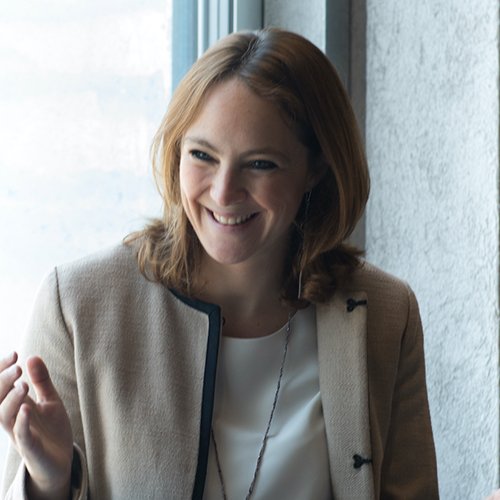Member Spotlight: Prisca Liberali, PhD
Prisca Liberali, PhD
The Friedrich Miescher Institute for Biomedical Research (FMI), Switzerland
Hometown
Rome, Italy
Current Residence
Zurich, Switzerland
Graduate Degree
PhD in Cell Biology
Current Position
Senior Group Leader at The Friedrich Miescher Institute for Biomedical Research (FMI)
-
Multicellular organisms are composed of cells and tissues with identical genomes but different properties and functions. They all develop from one cell to form multicellular structures of astounding complexity. During development, in a series of spatio-temporal coordinated steps, cells differentiate into different cell types and establish tissue-scale architectures and functions. Throughout life, continuous tissue renewal and regeneration is required for tissue homeostasis, which also requires fine-tuned spatio-temporal coordination of cells. In the lab we are interested in how cellular interactions generate the specific contexts and spatio-temporal coordination underlying development and regeneration and we specifically investigate what are the molecular and physical mechanisms that allow a cell, in a tissue, to sense its complex environment, to take individual but coordinated decisions.
The most rewarding part is on one side the discovery process that I find fascinating and on the other side the mentoring of student and postdoc.
-
We are interested in how cells can sense their environment and respond correctly to it in heathy tissue and how these sensing mechanisms are broken during disease. Using multicellular systems such as organoids gives us the unique opportunity to get to the core of the question in very accessible system without the complexity of a body and even directly in human tissues
-
Since I am very young, I have been drawn toward science: physics, chemistry (as university) and then quantitative biology. Part of the attraction to science is understanding the systems and as I mentioned above the discovery process. Thinking deeply about a problem, coming up with hypothesis that can then be tested with computational models and experiments. For the the stem cell research is actually the intrinsic self-organizing properties of stem cells. They have a unique way to sense their environment in very precise and robust ways and the downstream differentiation process is highly coordinated and inherently complex.
-
One of the most exciting part is the mentoring. Having student that learn and, in the process, become amazing scientist. I am very proud of all my students and I love to put in the best condition possible to achieve their best. Another exciting aspect of the work is seeing a story coming together. I am very data driven in my thinking process and I really enjoy seeing the first version of figures to start preparing a manuscript.
-
To be quantitative, open minded and not to be afraid. Most of the experiments are hard and perseverance is essential to obtain high quality data. Moreover the thinking process is something they need to learn as early as possible and every mind is different so trainees should explore what best fit for them.
-
Many scientist have inspired me and I personally really enjoy the work I have done (and I am doing) with Edouard Hannezo and my long term collaboration and friendship with Dana Pe’er. Generally, I look up to scientist that combine a strong biological knowledge with quantitative data.
-
I am an outdoor person. I love skiing, horse riding, climbing and sailing. All this with my family and especially my children.
-
I never studied biology before the start of my PhD and I commute 3 and half hour a day to go to the lab.
-
The community feeling the ISSCR is able to create.

